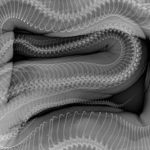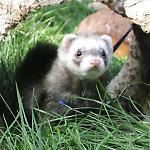Blog
Behind Every Animal Keeper is a Veterinarian
Providing quality care for animals doesn’t just mean giving them shelter, food and water; animals also need to be seen by a doctor on a regular basis to ensure they are healthy. A doctor that specializes in animal health is called a veterinarian. CuriOdyssey currently works with two veterinarians that visit the facility every month to perform health checks on all of our animals and preform veterinary procedures as necessary.
A few months ago, veterinarian Dr. Goodnight performed an annual exam on our golden eagles (Aquila chrysaetos), turkey vultures (Cathates aura) and ravens (Corvus corax). This exam included checking heart health, weight, trimming talons and beaks, administering West Nile vaccines and drawing blood.
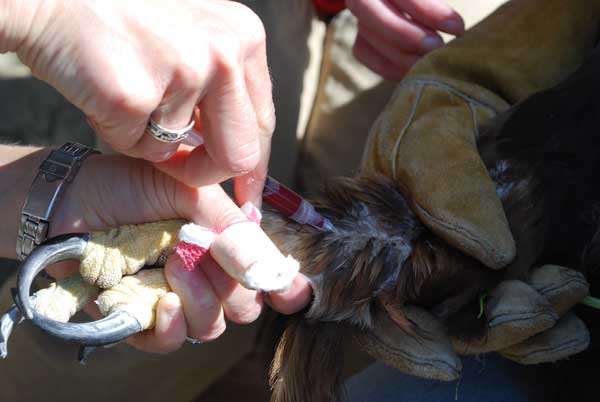
It is important to have animal keepers present during these procedures because they are trained professionals in animal capture, handling and restraining. The animal keepers also work with the animals on a daily basis and know each individual animal in terms of physical markings and behavior. During exams, animal keepers capture and restrain our birds, and also monitor their stress level. At times, a bird may wear a “hood” to help it stay in a calm state, rather than focus on the action around them. It is expected that during annual exams animals will express some signs of stress. If an animal exhibits stress-related behaviors that indicate its health and safety are in jeopardy, however, the procedure will be aborted immediately. Because our veterinarians and animal keepers work diligently and quickly, our birds had their check-ups without incident.
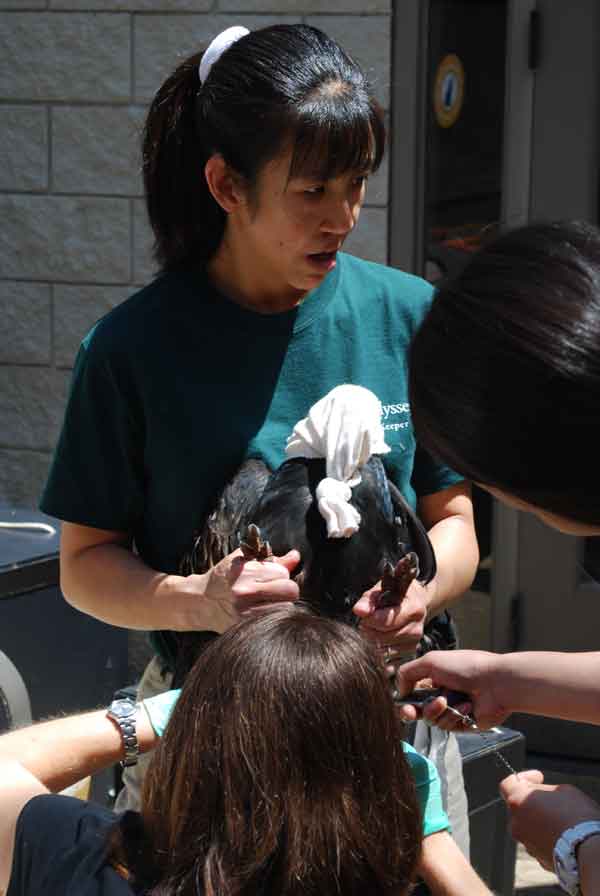
In the wild, golden eagles and other raptors naturally have their talons and beaks filed down from everyday wear and tear. Captive raptors tend to be less active than their wild counterparts because they have limited space and often times are physically compromised. In the case of our eagles, Oro has a partial wing amputation and chest muscle damage, and Ishta is blind in her right eye. Because of their circumstances, keepers must trim their talons and beaks for them. Below is a picture of what their talons look like before trimming. Yikes!
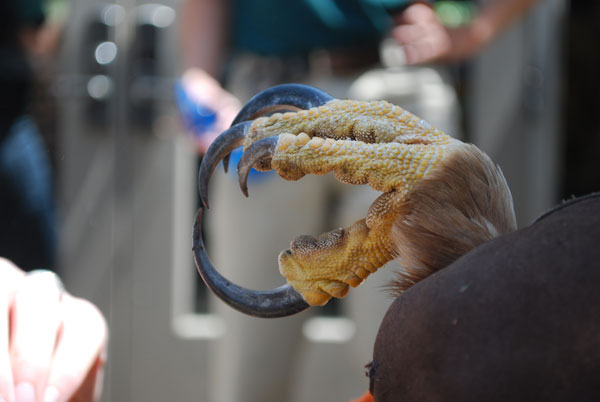
The act of trimming a bird’s talons and beak is called “coping.” Below are pictures of our eagles getting their talons and beaks coped.
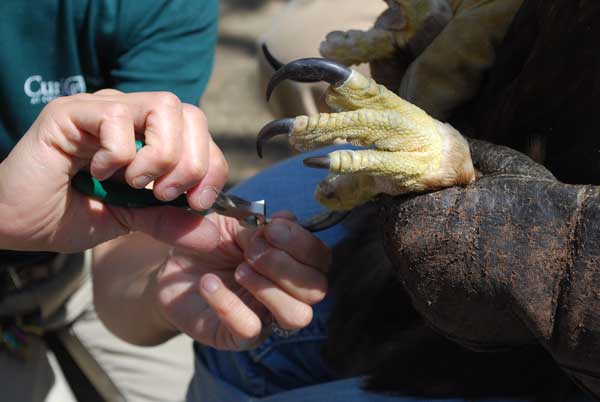
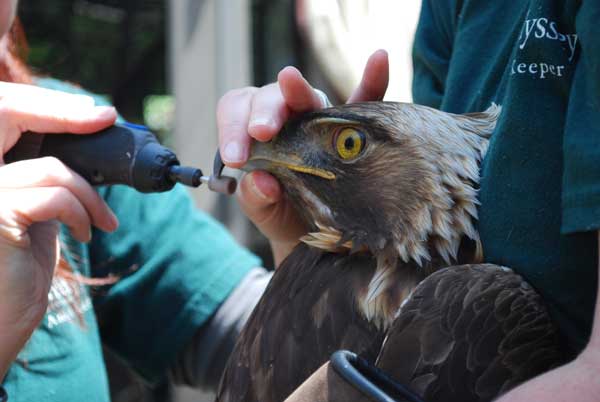
Blood is also drawn to test for diseases, blood cell count and more. Animals often suppress pain in the wild so they don’t draw attention to predators. If they are seen limping around or behaving suspiciously due to illness, they become an easy meal for a stronger, hungry animal. This makes an animal keeper’s job more difficult because illnesses may go undetected. Because animals can’t tell humans specifically how they are feeling and what is troubling them, doing complete blood work is the next best thing. Blood drops are placed on slides, which are then assessed in a lab. Everything from DNA, red and white blood cells and even past vaccines still in their blood are examined!
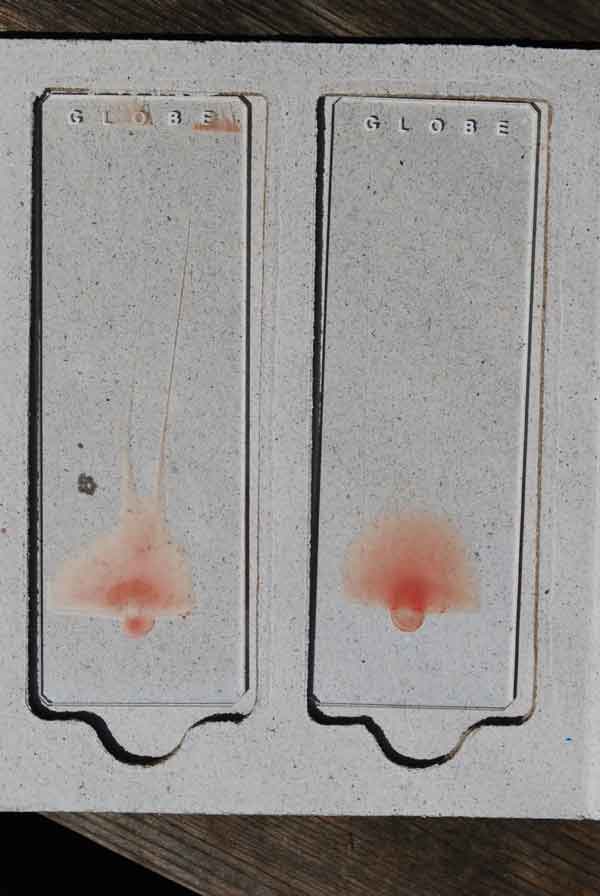
After the annual check-up and blood work results, Dr. Goodnight informed us that our birds were all healthy. We appreciate the veterinarians that we work with because they help us do our job – keeping our animals healthy and stimulated. Good work, CuriOdyssey team!
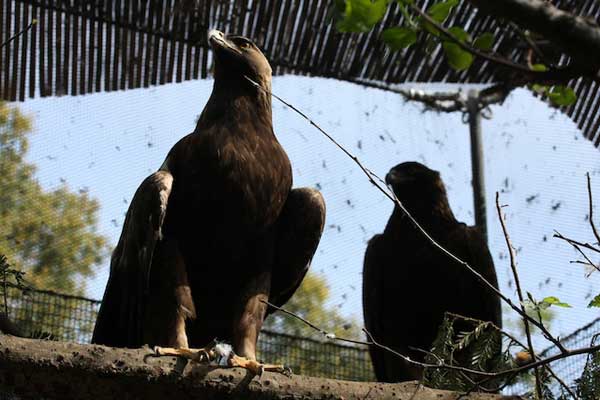
– post by Rachael Tom
– first six photos by Alejandro Maestas; last photo by Rachael Tom
Join the CuriOdyssey Community
LOCATION
1651 Coyote Point Drive
San Mateo, CA 94401
Ohlone Land Acknowledgement
650-342-7755
info@curiodyssey.org
CuriOdyssey is a 501(c)(3) non-profit, Tax ID 94-1262434


